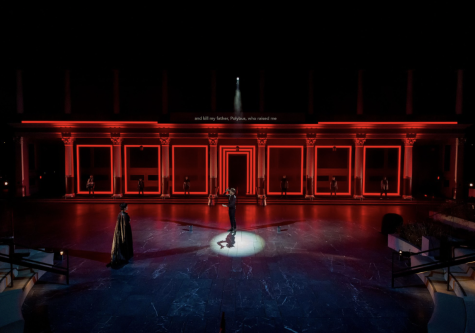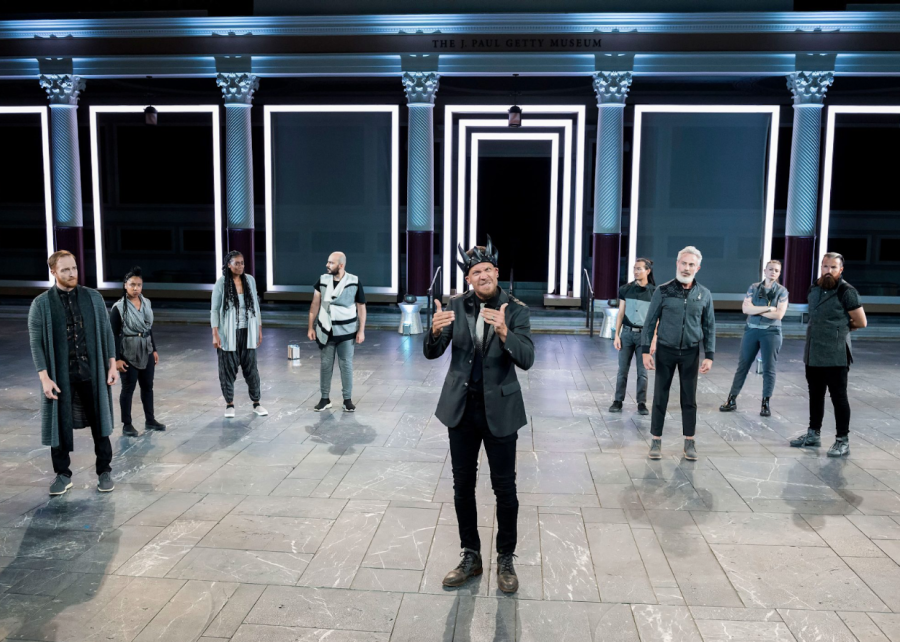DeafWest’s Production of Oedipus- How We Can Raise Abilities Awareness in Performing Arts
October 21, 2022
Oedipus Rex is a Greek tragedy written by Sophocles. The play is about Oedipus, the king of Thebes, who unknowingly committed patricide and married his mother. With a series of mysteries and discoveries, Oedipus realizes the one who really killed the former king of Thebes was Oedipus. Following his revelation, Oedipus blinds and exiles himself from Thebes, disgusted by his actions and ashamed to be named king. This tragedy was first performed in 429 BC, but throughout history, this play was performed and reimagined in unique ways to portray thrilling scenes and emotional lines. But how does one portray the same level of intensity without sound?

The infamous Sophocles’ tragedy, Oedipus Rex, has been reimagined and performed by the Los Angeles-based performing arts company, DeafWest. Inside the beautiful Greek outdoor theatre, as a collaboration, both DeafWest and the Getty Villa worked together to present the Greek tragedy. In this innovative and visually rich reenvisioning of the play, DJ Kurs, the Artistic Director of DeafWest, made DeafWest’s mission to “bridge the gap between the Deaf and hearing communities…”. The audience was able to understand the plot of the play through the production’s use of new technology in communicating American Sign Language. In order to encapsulate the emotional depth of the play, the actors had to present intense and emotional movements, both in stage directions and ASL. One of the actors that I admired the most was Amelia Hensley, who played Orphée. The ferocity of her performance and the despair that pervades her entire body communicates and shows the audience a grief that is beyond words.

The performing arts have been known to go beyond and break down the conventions of traditional theatre. In DeafWest’s production of Oedipus, not only does the audience get to experience a glimpse of the actor’s perspective, but also encourages the viewers to learn more, to immerse themselves in the creative mind of the actors. This is one of the many ways people can learn and raise awareness about the different types of disabilities present. A comprehensive and holistic view of disabilities allows people to create and develop a better understanding of inclusivity, accessible programs, and services. This serves as an opportunity to learn about how people can help and include individuals with disabilities in the most universally accessible way.



